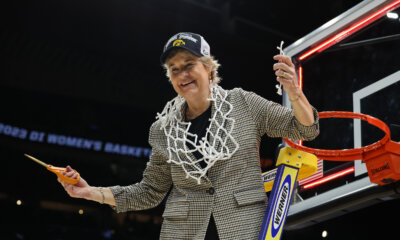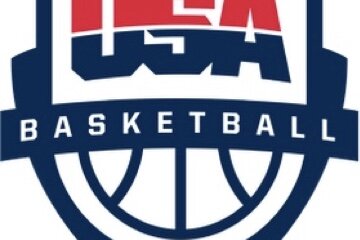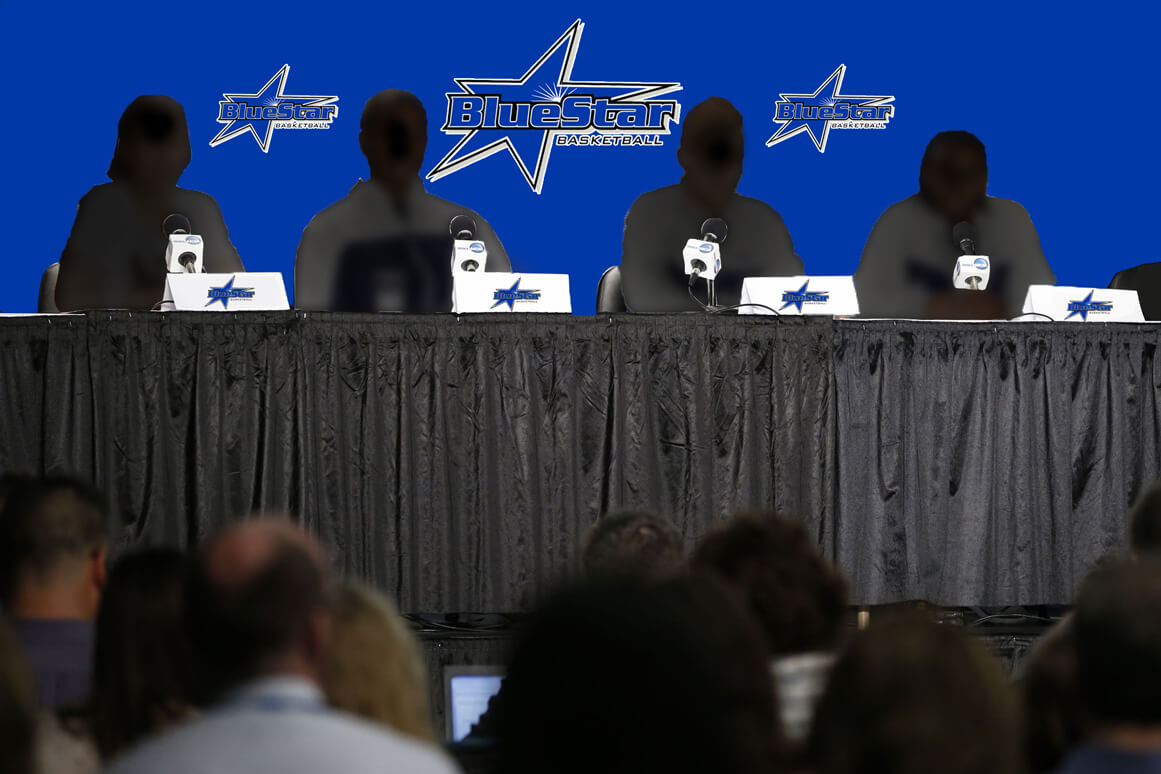
(Photo Credit: Arlene Langer, IDI Sports)
I had chatted with Tom Collen on the first full day of the SEC Tournament last week only to learn, less than 24 hours later, that he was gone, fired by Arkansas after his seventh season on the job, and with just one NCAA appearance to show for it.
Getting bounced by Ole Miss, which was the 14th seed, after blowing a late lead, may have sealed his fate.
I wasn’t the only person surprised by the termination; another writer and I had been talking about the state of the SEC, pointing to the bevy of underclass players on most teams, including those at the top, and how the coaching turnover of recent years appeared to be at least at a temporary end.
We were wrong about that, and thinking a bit longer about it, perhaps I shouldn’t have been entirely surprised. If there’s anything to take from the recent pattern of big-time hires in the women’s game, it’s get to the NCAAs and contend in your conference in fairly regular fashion, or else.
Collen got the Razorbacks back into the dance in 2012, the year after Gary Blair led Texas A & M to the NCAA title. A former Blair assistant at Arkansas who took Colorado State to an Elite 8 and built up the Louisville program, including recruiting Angel McCoughtry. While the Cardinals continue to thrive nationally under Jeff Walz, Arkansas will be making a third coaching change since Blair.
After losing to archival Kansas in the first round of the Big 12 tourney, Deb Patterson was let go after 18 seasons at Kansas State. She did well to breathe life in a moribund program, and with a 350-226 record was the winningest coach in school history.
But recent results weren’t there. K-State finished up at 11-19, its second losing season in five years, and that’s a ledger that just isn’t cutting it for results-oriented ADs. Patterson also was being paid $600,000 a season.
As I wrote last week, Oregon didn’t wait for the Pac 12 tourney to notify Paul Westhead that he was gone. In fact, it was expected, as his contract was up.
With the money that’s being poured into the women’s game, especially mid-to-high six figure salaries for BCS-level coaches, there’s an ROI that’s being expected in the most expensive non-revenue sport in the NCAA.
This trend has been evolving for quite a few years, but I date 2007 as a tipping point not only for skyrocketing salaries, but when the expectations on coaches to win reached new dimensions.
That’s when Gail Goestenkors became a million-dollar coach in moving from Duke to Texas. Since that spring seven years ago, 61 coaching changes have been made at the major conference level, involving a total of 45 schools. That’s nearly two-thirds of the schools that until the demise of the old Big East made up the six BCS leagues.
That same year, 2007, Collen was hired at Arkansas, Penn State brought in Coquese Washington to clean up the mess left behind by Rene Portland, and Van Chancellor took over the reins at LSU.
Four years later, Chancellor too was gone, a Hall of Famer and WNBA champion and Olympic gold medal coach, his contract not renewed. Two 19-win seasons and another with 20 wins weren’t enough after five consecutive Final Fours. LSU doubled Nikki Caldwell‘s salary at UCLA to $700,000 in a hire that turned heads for the cash splash as much as for the former Tennessee star’s top-notch taste in sideline fashion.
(Here’s what I wrote, in the spring of 2011, when Debbie Ryan and Wendy Larry were also replaced, at Virginia and Old Dominion, respectively. At the same time, both Bloomberg and USA Today took note of escalating women’s salaries.)
Of those 61 coaching changes, 33 were firings for performance — not enough wins, NCAA berths, etc.
Holly Warlick, Pat Summitt’s former point guard and longtime assistant, inherited even more complicated expectations when she succeeded the now-retired Tennessee legend two seasons ago. The Lady Vols lost their first game under Warlick, to Chattanooga, prompting calls from fans for her to be fired.
That’s ludicrous, of course. But it’s important to note that Warlick received only a four-year contract to start. It’s since been extended since Tennessee won the SEC regular season title last year and likely will be again after the Lady Vols claimed their 17th SEC tourney crown last week.
I asked her after the Kentucky win if this SEC tourney title felt different than the ones she had earned as a player and assistant, and she preferred to talk about her players.
“They all felt special,” Warlick said. “With this team, what they’ve been through — I’m obviously happy for myself, but I just love it that they get to experience it.
“They’re part of our history.”
There also were two uncharacteristic conference losses at Thompson-Boling Arena this season, to LSU and Kentucky, that may have caused some muttering.
“For us, we feel it shouldn’t’ happen,” Warlick said, “but it happened to two very good teams. “Everywhere we went this year, it was a battle. We were nervous to go up to Missouri. They beat us up there [last season].”
Other newly hired coaches are finding out there’s no honeymoon. Alabama hasn’t been to the NCAAs since 1999, but the meter to get back was already running for former Purdue and Texas Tech coach Kristy Curry when she arrived in Tuscaloosa last spring.
In addition to her $400,000 annual salary are $20,000 contract bonuses for reaching the Women’s NIT and finishing in the top seven of the SEC, but only in her first two seasons.
At least one power conference coach thought to be in some danger got a reprieve on Friday. Dennis Wolff, whose hiring at Virginia Tech three years ago caused a furor among some women coaches, is being retained by new AD Whit Babcock.
The Hokies were 14-16, representing their best win total in five years, and they upset North Carolina in Chapel Hill in February.
But Wolff does have three years left on his contract and his annual package is relatively low by BCS standards, estimated at around $400,000.
Wendy Parker is a sportswriter and web editor who has covered women's basketball since the early 1990s. She is a correspondent for Basketball Times and formerly covered women's and college sports, soccer and the Olympics at The Atlanta Journal-Constitution. She is the author of "Beyond Title IX: The Cultural Laments of Women's Sports," available on Amazon, and the creator of Sports Biblio, a blog about sports books and history.

Latest Articles
-


Christopher Lawlor
/ 3 hours agoBREAKING: Lisa Bluder steps down as Iowa women’s head coach after leading Hawkeyes to back-to-back Final Fours; Jan Jensen inherits position
IOWA CITY, Iowa – In a shock to some, Iowa women’s head coach Lisa...
-


Christopher Lawlor
/ 4 days agoTwenty-Six Athletes Expected to Participate in USA Basketball Women’s U18 National Team Trials that begin on May 15
COLORADO SPRINGS, Colo. — USA Basketball announced 26 athletes expected to participate in the...
-


Basketball
/ 7 days agoAAU 3on3 Highlights WBHoF 25th Anniversary Weekend
KNOXVILLE – The 25th anniversary weekend celebration of the Women’s Basketball Hall of Fame...
By Mike Flynn -


Christopher Lawlor
/ 1 week agoGONE PRO: Blue Star Media Elite 25 football rankings’ regulars Bishop Gorman (NV) and IMG Academy (FL) lead 2024 NFL Draft with three selections apiece
BENSALEM, Pa. – One of the greatest three day stretches annually in professional sports...



